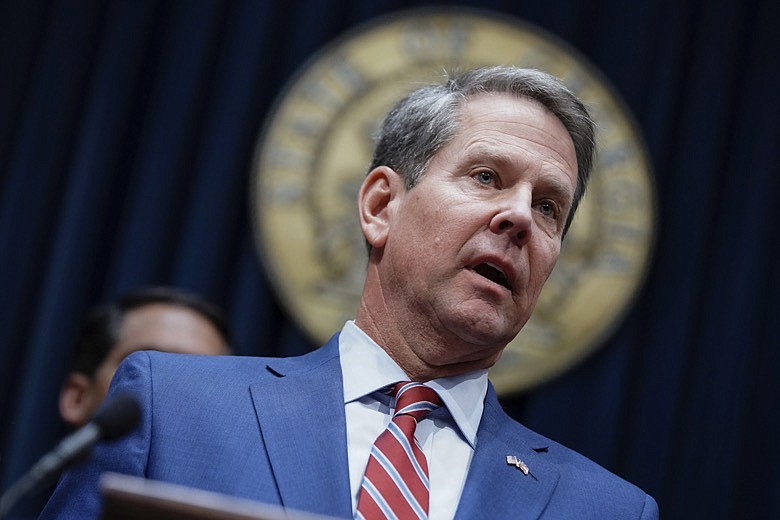ATLANTA (AP) - Lawmakers who write Georgia's budget are questioning Gov. Brian Kemp's decision to pay for a teacher pay raise with budget cuts.
Both Senate Appropriations Committee Chairman Jack Hill and House Appropriations Committee Chairman Terry England said Thursday that more than $200 million in budget cuts are hard to swallow when the Republican Kemp wants to spend $376 million to give $2,000 raises to K-12 and preschool teachers. That's the back end of a $5,000 raise Kemp promised when running for governor. He also seeks $45 million for a $1,000 pay increase for state employees now earning less than $40,000 a year.
"It would be easy to explain the cuts if we weren't turning around and spending it on raises," said Hill, a Reidsville Republican. England echoed that in a separate interview, with the Auburn Republican saying, "There's a lot of truth to that."
What their comments mean for the process of writing Georgia's $28 billion budget remains unclear. Besides Kemp's priority of teacher raises, Republican House Speaker David Ralston of Blue Ridge favors proceeding with a planned income tax cut that could reduce state revenues by as much as $550 million.
Hill and England were among dozens of lawmakers who sat through three days of budget hearings. Some agency directors said they could maintain services while spending less by reorganizing or cutting spending on underused programs, which is Kemp's overall theme. Others told lawmakers that less money means they will do less.
"The safety net is stretched to the max," Judy Fitzgerald, commissioner of the Department of Behavioral Health and Developmental Disabilities, told legislators Thursday. Her agency's budget is supposed to fall about 2% for the year beginning July 1, but that's a more than $20 million decrease in its $1.2 billion in state money. She said people seeking services will be turned away.
"A spoonful of sugar is not going to make this go down," said Rep. Darlene Taylor, a Thomasville Republican.
Other cuts Friday that provoked dismay included millions less for county health departments and reduced spending on educating new physicians.
Rep. David Knight, a Griffin Republican, asked whether a bill to collect taxes on more online sales that the House and Senate sent to Kemp last week might prompt the governor to raise his revenue estimate. It's projected to increase collections by more than $100 million a year. But Kelly Farr, director of Kemp's Office of Planning and Budget, warned against relying on estimates. He likened it to the cut that lawmakers made in 2019 to the state's top income tax rate, which was followed by worse-than-estimated income tax collections.
"It didn't quite perform like we hoped," Farr said. "So I think it would be prudent, if the governor asked my opinion, to wait and see what the performance actually was."
Hill called the exchange between Knight and Farr "interesting."
"The revenue-setting process, right now, is a pretty closed one," Hill said, referring to Kemp's power to set a revenue estimate that lawmakers must live within.
The focus now turns to the House, which is likely to pass an amended budget for 2020, and then a spending plan for the 2021 year beginning July 1. England said he is particularly worried about proposed cuts to mental health, county health departments, university agricultural and research programs and the state Department of Agriculture.
"Members are concerned about the cuts, which is to be expected when you put a face to it," Hill said.
